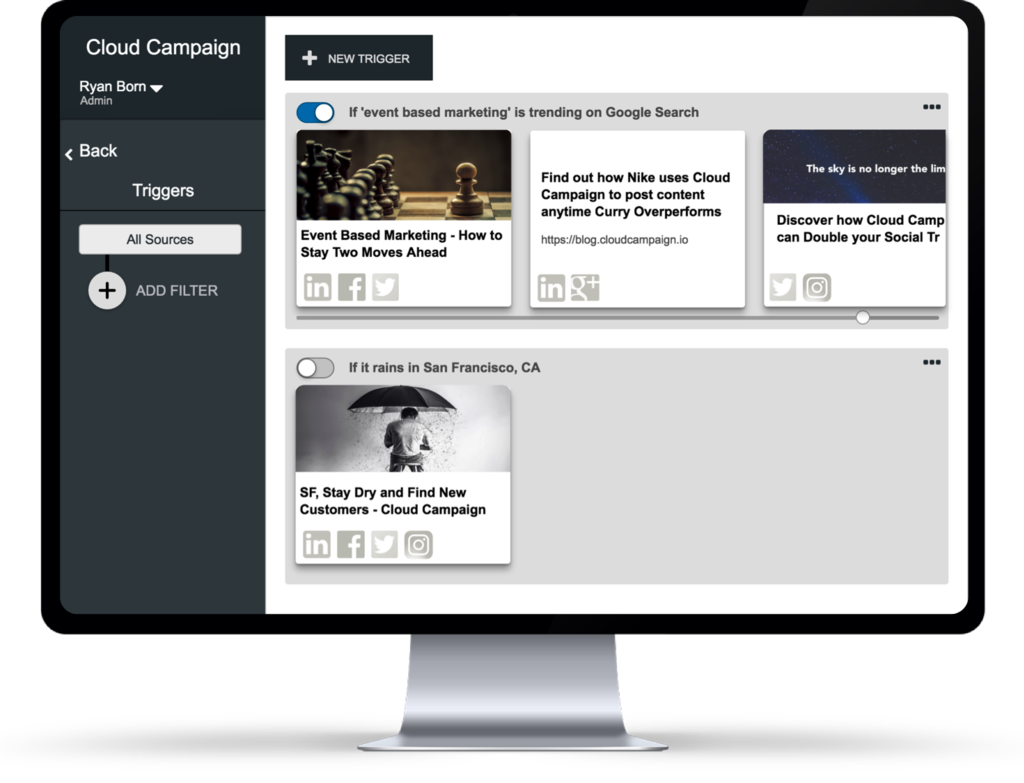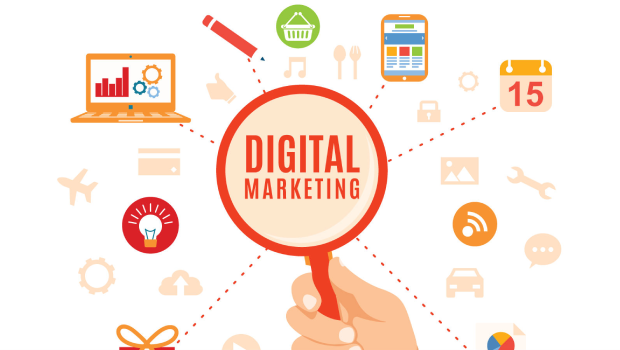Looking to go into digital marketing in the aftermath of the global lockdown? Here are the top 10 dos and don’ts revealed by Opace
In an unprecedented world of change brought about by the recent pandemic, organisations are evaluating their digital marketing strategy. A silver lining in the cloud for digital marketers has been the fact that clients are now increasingly looking for online solutions.
In a world fraught with social distancing, technology provides marketers with a viable solution to target consumers online. Consumer behaviour has also changed with most buyers making their purchases online. In the UK home and leisure segment alone, the percentage of weekly online orders rose from 30% in January 2020 to a steady 200% throughout March, April and May this year.
David Bryan, founder and CEO at Opace, explains how technology can bridge the gap during the global lockdown:
“There are plenty of technology-based solutions, including cloud-based systems, online collaboration tools and virtual technologies that can help marketers to reach out to their audiences during the current crisis. Businesses will now continue to adopt remote working as a part of their operational strategy through the crisis period and after. This is a good opportunity for digital marketers to use technology solutions to reach out to their clients and ensure that services are seamlessly delivered online.”

Opace has recently compiled a report that studies how business owners and digital marketers can use virtual solutions to keep pace with the changing trends. So, if the time is right for digital marketers to succeed in a post-pandemic world, it’s important to understand its implications and how to go about it.
The dos – five actions that marketers can take right now
1. Include geographical diversification in your marketing strategy
Digital marketing provides businesses with the opportunity to explore cross-border markets. If your business creates products that can be delivered to other countries, this can be a good time to seize that opportunity. Although COVID 19 has affected nations across the world, some have been affected more than others.
For example, the United States and several European nations have higher reported cases of the disease. But, there are other nations which have managed the problem better. It’s time to include diversification in your marketing strategy to reach out to these emerging markets. SEO optimisation for your online business can help generate traffic from these international regions. This can be a boon in the current situation and exploring this strategy can help generate revenue for your online business.

Collaborative tools can enhance the productivity of digital marketers
2. Education businesses can prosper
If your business provides online educational courses, now is the time to rake in the revenues. Students all over the world have shifted to carrying on their education online. It’s not just students, professionals are also keen to use the time they have at their disposal when working from home to further their knowledge through CPD courses. Many people are also in between jobs, looking for avenues to improve their skills and knowledge, in order to enable them to seek better employment.
It’s a great new opportunity for online educational businesses to create fresh content and market their courses through online channels. Even if you are a solo entrepreneur and do not have your own channel with high volumes of traffic, you can explore sites that provide a learning experience through the MOOC model (Massive Open Online Courses).
Sites like Udemy allow you to create our courses and reach out to audiences across the world. Giving away a limited number of free courses can be an excellent “try before you buy” strategy. A simple online search can help you identify platforms that market free MOOC courses.
3. Offer payment plans that spread the cost
This strategy has historically been adopted by several companies who market online. However, with the economic slowdown and the reduced share of wallet from organisations and customers alike, this can be an effective conversion strategy going forward. Many people think that payment plans are only applicable to physical goods like televisions and washing machines, purchased by individuals.
But, that’s not true. If your business provides management consulting services or digital marketing services, offering a staggered payment plan to your B2B customer can improve your rate of conversions. It also tells your clients that you care about them and are willing to adjust in a time of crisis.
Bryan said:
“Ensuring that your customers have the flexibility to pay for your services over a period of time goes a long way in preserving goodwill. Eventually, once the crisis is over, you will still need your clients. Showing empathy at this point in time can win you the loyalty of your customers in the years to come.”
4. Take advantage of the reduced cost of advertising
In the current scenario, the number of people who are online has increased. Of course, this is largely due to a greater number of people working from home and staying indoors. This simply means that internet traffic has increased exponentially. However, the number of online advertisers has reduced greatly. Therefore, pay per click ads are cheaper. This can be a wonderful opportunity for your business to target online customers and reduce your marketing spend at the same time.
5. Re-invent your brand’s messaging
Reaching out to customers during the COVID 19 pandemic can be tricky. It’s important to assess how people will react to the imagery and messages you use. Appropriateness is an important consideration while re-defining your brand’s creative. For example, images that show large numbers of people congregating in groups or several people partying together could be deemed inappropriate, in the current context of social distancing. Similarly, messages that imply physical contact may not go down well. A message that uses the words “joining hands” can be replaced with “collaborating”. The current scenario has forced many businesses to shelve their marketing plans, and this could be an opportunity in disguise to redesign marketing campaigns.
The don’ts – what you should avoid doing right now
1. Don’t create fear marketing
Taking advantage of the global pandemic is most likely to be frowned upon, and it’s unethical. Examples of profiteering from the current crisis could include changing pricing structures to make quick gains. If your business deals in essential supplies, it’s completely unethical to rake in profits by taking advantage of the crisis. Communication is an all-important factor during any crisis and ethical businesses will keep stakeholders fully informed about any action in a transparent manner. Using negative messages and dramatizing the situation will result in your business losing goodwill with customers.

Remote marketing through cloud based platforms will become more popular
2. Don’t press the panic button
Cash flows of most businesses are going to be down for a while. This would most likely include your business customers as well. Going into digital marketing in the post-Covid 19 period will mean showing greater empathy to customers. This may mean waiting for a while until the economy picks up and things start to normalise once again. Be patient.
3. Don’t bury your head in the sand
Although we all hope that the COVID 19 crisis will soon get over, there’s a high chance that it may be around for a while. This means that digital marketers need to invest time and effort in researching the market and getting involved in scenario planning. We are still viewing advertisement campaigns on Google and YouTube from businesses that are currently unable to deliver. A good example would be travel companies that are advertising holidays and cruises even now. It’s important to review your marketing plan at a time like this, shelve marketing campaigns for products and services that you can’t fulfil, and optimise your marketing budget.
4. Don’t disappoint your audiences
If you have any marketing events planned in the pipeline, chances are they won’t materialise. Instead of cancelling these events altogether, take proactive action and move to host them online. If you have a dealer meet planned or the launch of a digital product or service, they can be hosted as a virtual event, with a good degree of success. The key lies in proactive planning and informing stakeholders in advance about the change in plan.
5. Don’t waste your money
Marketing budgets have been slashed worldwide. This has prompted advertising channels to come up with great deals that tempt you to invest in more visibility. While this is great news for digital marketers, it can be a double-edged sword. Listen to what your customers are saying across your social media channels and plan your marketing responses and actions accordingly. Remember, optimising your spend at a time like this will help your business survive in the long run.
Bryan explains:
“At Opace, we care about how our clients spend their marketing budgets. Our advice to them is to carefully rationalise their marketing and advertising spend during the current economic situation. By carefully planning activities, digital marketers can reach out to their audiences in the smartest possible way.”
In conclusion
Clearly, although we all hope that the COVID 19 crisis will end soon, the situation will likely be here for a while. However, all things must pass and eventually the world will overcome this challenge. In the interim, digital marketers need to be careful in crafting their strategies and stay abreast of the changing trends to be successful.
David Bryan of Opace Ltd can be reached by email – [email protected] to discuss how digital marketing strategies can succeed in the current economic situation.
Please visit www.opace.co.uk to find out more.














